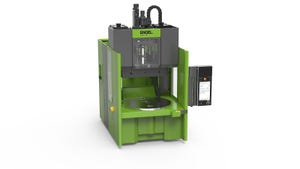K 2013: Growth in plasticizers market drives new expansion for Emerald Performance Materials
Düsseldorf — Emerald Kalama Chemical, a business group of Emerald Performance Materials, is investing an estimated 5-10 million Euro to re-start a second benzoic acid reactor train at its facility in Rotterdam, Netherlands, adding 75,000 metric tons of new capacity for benzoic acid, the company announced at its K show press conference.
October 16, 2013
Düsseldorf — Emerald Kalama Chemical, a business group of Emerald Performance Materials, is investing an estimated 5-10 million Euro to re-start a second benzoic acid reactor train at its facility in Rotterdam, Netherlands, adding 75,000 metric tons of new capacity for benzoic acid, the company announced at its K show press conference. With the basic infrastructure already in place, the main investment is in controls and automation, "with little headcount impact," said Julie Vaughn, VP of business development and marketing services at Emerald Performance Materials.
The added capacity will support sales of the company's Kalama and PUROX brand of benzoic acid and benzoate preservatives, as well as the expanding internal consumption needs for downstream products which have been driving growth. Benzoic acid is a key starting material for production of K-Flex non-phthalate plasticizers and coalescents manufactured at the site. The project is slated for completion in the second quarter of 2014.
"Benzoic acid is at the heart of everything we do," Vaughn said. "All of our products result from the benzoic acid reactor train."
"A key driver for the expansion is the growth in our K-Flex non-phthalate plasticizer line," she continued. "Capacity has doubled over the past two years."
The chemistry behind Emerald's K-Flex plasticizers sets them apart from other products in this area. "They are fast fusers," explained Vaughn. "In other words, they offer the same fusing performance at lower temperatures, or a faster performance at normal temperatures. Lower temperatures mean lower costs, and a faster performance at normal temperature means higher line speeds, both of which are good news for processors."
The plasticizer family is based on dibenzoate ester chemistry. Next to their fast fusing properties, these products are high polarity plasticizers that provide "excellent" film formation as coalescents for a wide range of applications. "The use of these materials in the formulation delivers performance benefits to the end products, such as improved scrub, stain and extraction resistance," Vaughn said.
Moreover, because of their fusion characteristics they are often used together with, or to replace general-purpose plasticizers as a non-phthalate choice, and are compatible with a wide range of polymers.They have a low VOC content and are non-SVHC and readily biodegradable. K-Flex materials are also cleared for use under certain FDA food-contact regulations.
About the Author(s)
You May Also Like


